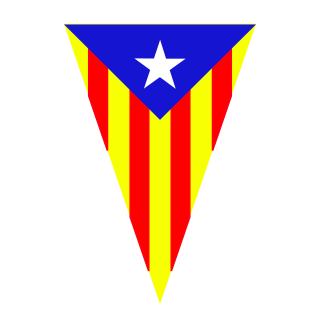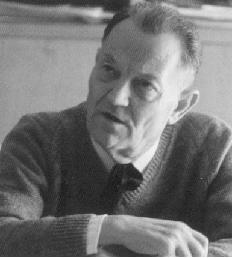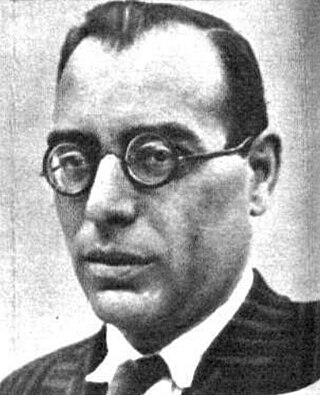The Republican Left of Catalonia is a pro-Catalan independence, social democratic political party in the Spanish autonomous community of Catalonia, with a presence also in Valencia, the Balearic Islands and the French department of Pyrénées-Orientales. It is also the main sponsor of the independence movement from France and Spain in the territories known as Catalan Countries, focusing in recent years on the creation of a Catalan Republic in Catalonia proper. Its current president is Oriol Junqueras and its secretary-general is Marta Rovira. The party is a member of the European Free Alliance.

Terra Lliure, sometimes referred to as TLL, was a Catalan nationalist far-left Marxist-Leninist paramilitary group. Formed in 1978, the group carried out hundreds of attacks that left many people injured and five dead.

The Unified Socialist Party of Catalonia was a communist political party active in Catalonia between 1936 and 1997. It was the Catalan branch of the Communist Party of Spain and the only party not from a sovereign state to be a full member of the Third International.

The Catalan independence movement is a social and political movement which seeks the independence of Catalonia from Spain.

The Estelada is a flag flown by Catalan independence supporters to express their support for an independent Catalonia or independent Països Catalans. The design of the Estelada comprises the red-and-yellow bars of the Senyera, with the addition of a five-pointed star in a triangle at the hoist.

Catalan Workers' Left was a political party in Northern Catalonia, France. ECT was formed in 1972, with its main base in Perpignan.
Catalan Liberation Front was a separatist group in Catalonia, Spain. FAC was formed in 1969 by people from the Catalan National Council (CNC) and the Working Youth of Catalan State (JOEC). The same year FAC initiated violent actions against Francoist Spain.
Independentists of the Catalan Countries was an independentist political party in the Catalan Countries. IPC was formed on 3 March 1979 through the merger of the Socialist Party of National Liberation - Provisional (PSAN-p) from the Catalan regions in Spain and the Socialist Organisation of National Liberation (OSAN) from the Catalan region of France. IPC published Lluita.

Josep Huguet i Biosca was Minister of Trade, Tourism and Consumer Affairs of the Generalitat de Catalunya from 20 October 2004 until 12 May 2006 and Minister of Innovation, Universities and Enterprise of the Generalitat de Catalunya from 29 November 2006 to 29 December 2010.

Estat Català is a pro-independence nationalist historical political party of Catalonia (Spain).

Jordi Arquer i Saltor was a Spanish communist politician and writer from Catalonia.

Joan Comorera i Soler was a Spanish Communist politician, journalist and writer from Catalonia who spent several years in Argentina before returning to Spain in 1931 at the start of the Second Spanish Republic. He was a Catalan nationalist, and was elected chairman of the Socialist Union of Catalonia in 1933. In 1936 he became Secretary General of the Unified Socialist Party of Catalonia (PSUC), in alliance with the Spanish Communist Party. During the Spanish Civil War (1936–1939) he built up his party into a major political force during the struggles among the supporters of the Republic between Socialists, Stalinists, Trotskyists and Anarcho-syndicalists. After the Republicans were defeated by the right-wing forces led by Francisco Franco he went into exile, living in Mexico and then in France. In 1949 he was expelled from the Communist party for his Catalan nationalism, and survived an assassination attempt. In 1951 he moved back to Catalonia using a false name. He was arrested in 1954 and died in prison four years later.
The Socialist Party of National Liberation was an independentist and communist party active in Catalonia. The PSAN was created in 1968 following a split in the more leftist sector of the National Front of Catalonia. Initially it was only present the Catalonia, but later also gained presence in the french region of Roussillon, the Valencian Community and the Balearic Islands. The party was illegal and clandestine until 1978, when all parties were fully legalised, after the Franco Dictatorship.
Left Nationalists was a Catalan socialist and independentist political organization founded in 1979 from historical militants of the Socialist Party of National Liberation (PSAN), National Front of Catalonia, Catalan Communist Collective and independents linked to social movements. Its structure was based in local assemblies, and claimed the right to self-determination of Catalonia within a confederal Catalan Countries. NE also defined itself as national-popular and socialist. The party attracted activist from social movements, specially environmentalists, feminists, gays, youth, etc. The most representative were Jordi Carbonell, Josep Maria Espinàs, Magda Oranich, Avel·lí Artís i Gener and Armand de Fluvià. NE disbanded in 1984.

Neus Català i Pallejà was a member of the Unified Socialist Party of Catalonia during the Spanish Civil War and was a survivor of the concentration camp of Ravensbrück. She is one of many Catalans who survived internment in the Nazi concentration camp system.
Left Bloc for National Liberation was a coalition and, later, political party in Catalonia and Valencia, Spain. BEAN was an independentist and socialist party, that defended a Socialist Federal Republic of the Catalan Countries.

When, in 1939, World War II erupted in Europe, Catalonia was part of Spain led by the caudillo Francisco Franco, who declared Spain neutral in the conflict. The country was devastated by the recently finished Spanish Civil War, which resulted in the defeat of the Second Spanish Republic and the creation of the Spanish State, and Catalonia, who was an autonomous region under the Republican government (1931-1939) lost the whole of its self-government when the Nationalist army occupied the area.
Carles Castellanos i Llorenç is a writer, translator, and political activist of the Catalan independence movement. He holds a PhD in Translation from the Universitat Autònoma de Barcelona, has been director of the Department of Translation and Interpreting of this University, and is currently a professor of doctoral studies in this Department. He is a member of the Catalan National Assembly and was vice-president from 2012 to 2013, as well as a member of Poble Lliure and the Popular Unity Candidacy of Barcelona.

The Assembly of Catalonia was a unitary body of the anti-Francoist opposition of Catalonia created in November 1971. Its fundamental demands were the demand for democratic freedoms, the general amnesty for political prisoners and the achievement of the statute of autonomy, which were synthesized in the motto of Freedom, Amnesty, Statute of Autonomy. In addition to the political parties—all of them clandestine—forces of various kinds were part of it, such as trade union organizations, professional groups, representatives of the university movement, neighborhood movements, Christian groups, regional assemblies, etc. The objectives of the Assembly were achieved during the democratic transition, especially when the Cortes approved the Statute of Autonomy of Catalonia in 1979.
Socialist Organisation of National Liberation was a pro-Catalan independence radical socialist political party in the Catalan Countries. OSAN was formed by Pere Iu Baron i Xixell and his affiliates who split from Catalan Workers' Left in 1977. The party was located in Northern Catalonia and maintained close relations with Catalan separatist organizations as well as Galician and Basque ones, specifically the Galician People's Union and Herri Batasuna.












